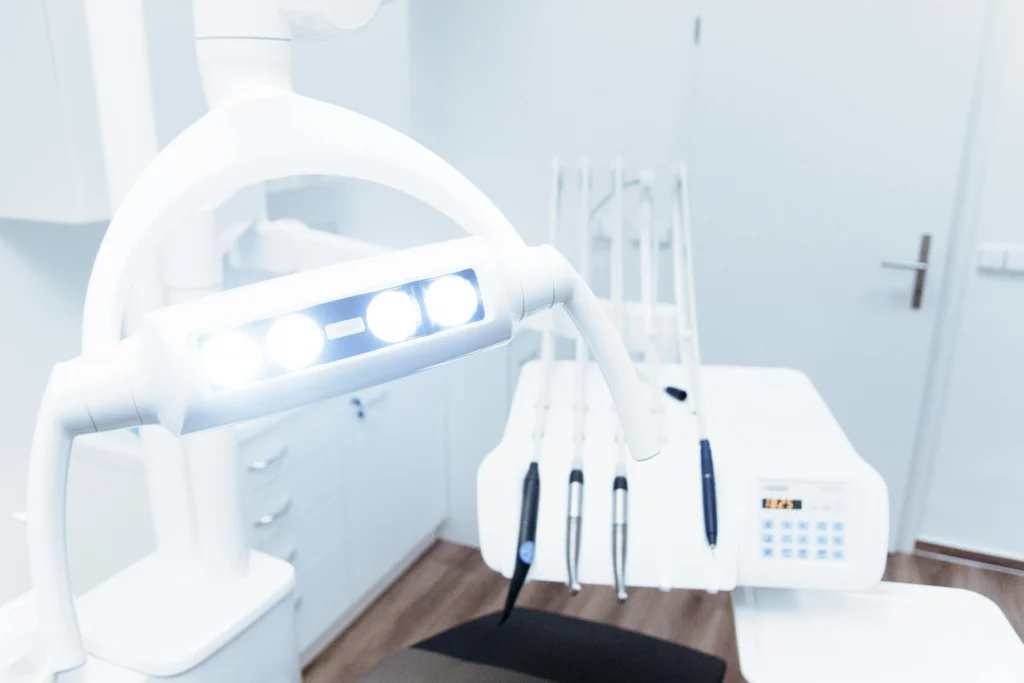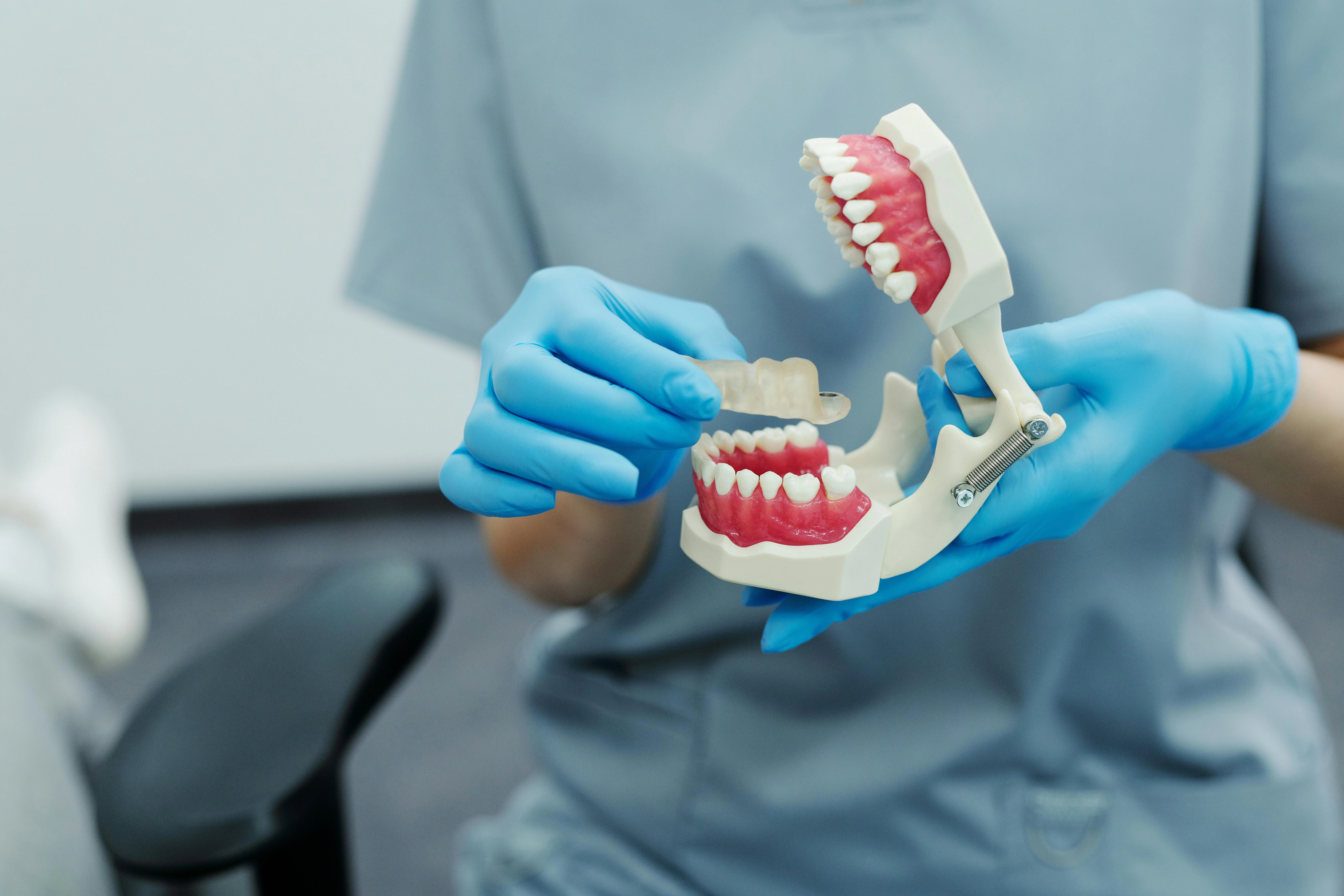For many caregivers, one of the most distressing challenges of dementia care is seeing a loved one struggle with teeth grinding, or bruxism. The constant clenching and grinding can wear down teeth, cause jaw pain, disturb sleep, and even make eating uncomfortable. Understanding how to stop teeth grinding in dementia patients begins with knowing why it happens—and what can be done safely to reduce it.
At Dental Home Services, our compassionate team of mobile dentists has years of experience helping families manage this issue at home. We bring professional dental care to patients across New Jersey, right where they’re most comfortable.
Contact us or call +1-800-842-4663 to schedule an in-home visit today.
Why Teeth Grinding Happens in Dementia
Teeth grinding in dementia patients is not uncommon. It can be caused by a combination of neurological, psychological, and medication-related factors. Dementia often alters muscle control, awareness, and stress response—all of which contribute to bruxism.
A systematic review published on PubMed Central found that bruxism occurs significantly more often in people with neurodegenerative conditions. Out of 619 subjects with neurological disorders, 19.67% presented with bruxism, compared to 11.73% of non-neurodegenerative individuals.
The study also notes that dysregulated neurotransmitters such as dopamine, serotonin, and acetylcholine contribute to bruxism in neurodegenerative disorders, including dementia. These imbalances affect how the brain regulates muscle movement and stress responses during both waking and sleeping hours.
This helps explain why teeth grinding may worsen as dementia progresses—and why the approach to care must be gentle, individualized, and coordinated between healthcare providers.
Recognizing the Signs of Bruxism in Dementia
Families often wonder whether their loved one is grinding their teeth, especially when the patient can’t communicate discomfort. Common signs include:
- Clicking or grinding sounds during sleep or quiet periods
- Worn-down or flattened teeth
- Broken or chipped dental work
- Facial, jaw, or temple pain
- Irritability or resistance during meals
- Difficulty opening or closing the mouth
In advanced dementia, teeth grinding may also occur alongside other repetitive behaviors. It’s not simply a “habit”—it’s a symptom of changes in brain function and muscle control.
How to Stop Teeth Grinding in Dementia: Step-by-Step Care

There’s no single solution to completely stop bruxism, but combining small changes and professional guidance can significantly reduce its impact. Here’s what families and caregivers can do.
1. Ensure Comfort and Calm Environments
Stress, overstimulation, and anxiety can trigger bruxism episodes. Simple changes can help lower agitation:
- Keep lighting soft in the evening.
- Play calm music or familiar sounds.
- Maintain consistent routines around bedtime and meals.
- Avoid caffeine or alcohol, which may increase muscle tension.
Even these basic steps can help decrease involuntary grinding during periods of rest or frustration.
2. Encourage Gentle Massage or Warm Compresses
If your loved one allows touch, lightly massaging the jaw and temples can relax tense muscles. A warm compress held to the jawline for a few minutes may also soothe stiffness. This can be particularly useful after eating or before sleep.
3. Review Medications with a Physician
Certain medications used in dementia care—such as antidepressants or antipsychotics—can increase the risk of bruxism. Because neurotransmitter dysregulation plays a key role, it’s important to review the medication list with a doctor to see if an alternative or dosage adjustment might help.
If you’re unsure, consult both the prescribing physician and your dentist to ensure no changes are made without medical oversight.
4. Try a Custom Night Guard When Possible
Custom-fitted dental guards can cushion the teeth and reduce the damage caused by grinding. However, not every dementia patient will tolerate a mouthguard. Some may remove it, resist wearing it, or even experience confusion.
That’s why having a mobile dentist in NJ visit at home can make a difference. Our dentists can assess whether a soft or hard night guard is appropriate, and we’ll take care of the fitting and follow-up in a calm, familiar environment (see our services).
5. Address Oral Pain and Dental Issues
Sometimes, teeth grinding in dementia patients is a response to oral discomfort. Sore gums, broken fillings, or loose dentures can all cause clenching. Regular exams with an in-home dental professional help identify and treat these issues early.
At Dental Home Services, we can provide in-home evaluations, denture repairs, and cleaning guidance for caregivers. This proactive care often reduces bruxism linked to pain.
6. Monitor Sleep and Breathing Patterns
Sleep disturbances and mild forms of sleep apnea are also associated with bruxism. Caregivers may notice their loved one grinding during restless periods of the night. Keeping a brief sleep diary or noting patterns can help physicians determine if further evaluation is needed.
For patients with moderate dementia, simple bedtime adjustments—such as sleeping on the side and maintaining a consistent bedtime—can make a meaningful difference.
7. Practice Gentle Oral Hygiene
Even as you work to manage grinding, maintaining oral hygiene is essential. Use a soft toothbrush, gentle circular motions, and take frequent breaks if your loved one becomes agitated. For patients with advanced dementia, it’s often helpful to demonstrate brushing together—a technique known as “hand-under-hand” guidance.
Our article on how to brush dementia patient teeth shares a step-by-step guide for caregivers.
8. Coordinate with Dental and Medical Professionals
Managing how to stop teeth grinding in dementia isn’t a one-person job. It often takes collaboration between physicians, neurologists, and dentists experienced in neurodegenerative conditions.
At Dental Home Services, our geriatric dentist team works directly with caregivers and healthcare professionals to tailor treatment plans that balance comfort, safety, and effectiveness.
When to Seek Professional Help for Teeth Grinding

If bruxism is causing visible tooth damage, jaw pain, or interfering with eating, it’s time to call a dentist. An in-home assessment is often the most practical option for dementia patients who cannot visit an office.
Our team at Dental Home Services offers comprehensive mobile care for dementia patients throughout New Jersey. From dentist home visits to denture adjustments and bite assessments, we handle every aspect of oral care with compassion and expertise.
You can also read more about dementia and teeth grinding or explore broader topics on dementia and dental care in our blog.
Why Choose Dental Home Services for Mobile Dentistry
For families searching for how to stop teeth grinding in dementia, knowing help can come directly to their home is often a relief. Our portable, high-quality dental setup allows us to treat patients anywhere—from private residences to memory care communities.
We specialize in:
- Geriatric and dementia-focused dental care
- Comfortable denture fittings and repairs
- In-home exams, cleanings, and extractions when needed
- Calming, familiar communication techniques
- Collaborating closely with caregivers and healthcare teams
Our dentists travel across New Jersey, ensuring elderly and homebound patients don’t miss out on essential oral care. Learn more about our full range of services or see what other families have shared in their reviews.
We Can Help Dementia Patients With Teeth Grinding Aftercare

Understanding how to stop teeth grinding in dementia means addressing both the symptoms and their root causes. From environmental calm and medication review to custom guards and professional dental care, each step can ease discomfort and improve quality of life.
For compassionate, expert in-home care, Dental Home Services is here to help every step of the way.
Book an Appointment or call +1-800-842-4663 to schedule a visit anywhere in New Jersey.
You can also find our team on Google Maps and learn more about how our mobile dentist in NJ program brings oral health care directly to your door.
Disclaimer: This article is for informational purposes only and should not replace professional medical or dental advice. Always consult a qualified healthcare provider for personalized guidance.

